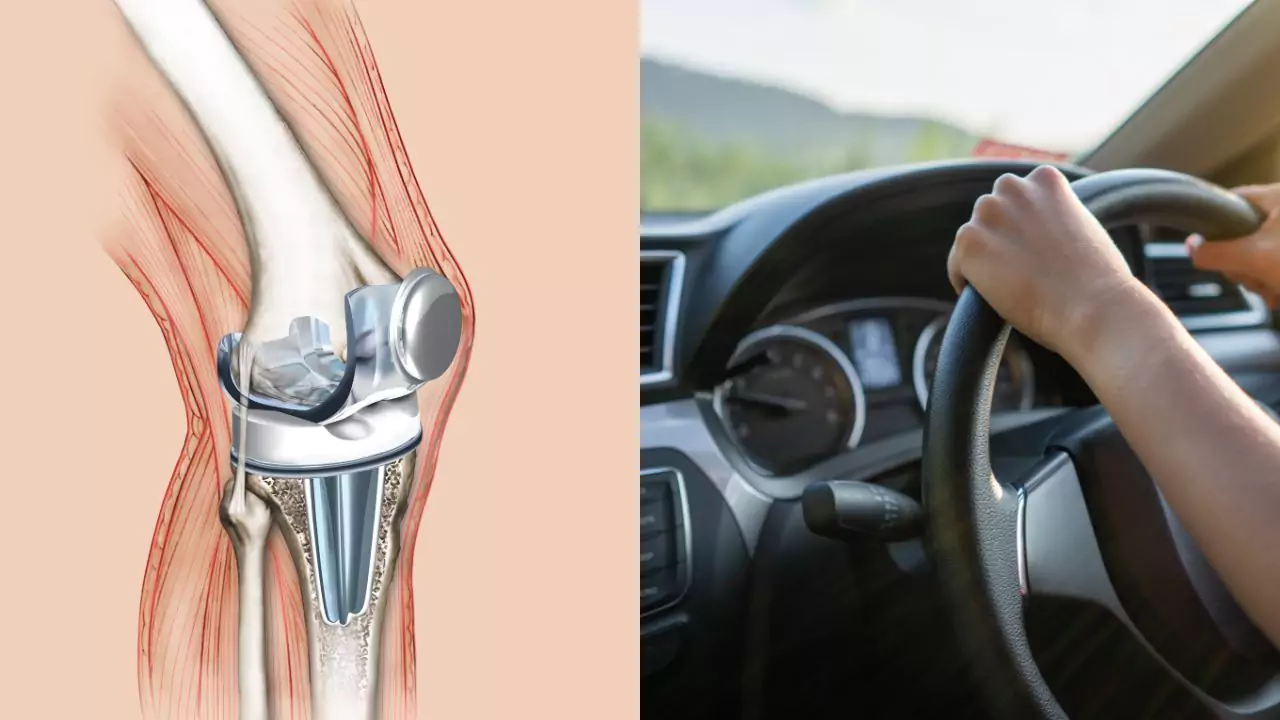Knee replacement surgery may influence your driving and vehicle insurance. Your auto insurance after knee replacement surgery may depend on your coverage and circumstances. Consider these:
Guidelines for Driving After Knee Replacement Surgery
1. Consulting Your Doctor
After knee replacement surgery, follow your doctor’s instructions about driving again. The timing depends on the operation, knee side, recuperation procedure, and medicines. After knee replacement, avoid driving for six to eight weeks. Before letting you drive, your doctor will check your range of motion, discomfort, strength, and reflexes.
2. Factors Affecting Your Ability to Drive
Driving requires coordination, reflexes, and movement. Pain, stiffness, edema, medicine, and weariness may impede these skills after knee replacement surgery. If you have trouble kneeling, pedaling, or getting in and out of the automobile, don’t drive. Drowsy, dizzy, or confused medications should also be avoided when driving.
3. Practice and Patience
Once you have your doctor’s clearance to drive, you should start slowly and gradually. Practice driving in a safe and familiar area, preferably with someone else in the car. Avoid driving in bad weather, heavy traffic, or long distances until you feel confident and comfortable. Be patient with yourself and don’t rush the process.
Informing Your Car Insurance Company
Gather Relevant Information
Before calling your auto insurance carrier, gather all the details regarding your knee replacement operation and driving condition. This may include:
- The date of your surgery
- The type of surgery (total or partial knee replacement)
- The side of the knee affected (right or left)
- The expected recovery time
- The date of your doctor’s clearance to drive
- Any driving restrictions or limitations
- Any documentation from your doctor or surgeon
Contact Your Insurance Company
It is crucial to notify your car insurance provider about your knee replacement surgery and any driving restrictions that may follow. Doing so ensures your policy remains valid and helps avoid any complications in the event of an accident or claim. Post-surgery, notify your insurance carrier of any driving modifications. Follow their instructions and guidelines regarding your coverage and premiums.
Submit Required Documentation
After knee replacement surgery, your insurance provider may want proof of fitness to drive. A doctor’s note, medical documents, or a driving certificate may be required. Submit these papers on time and maintain copies for yourself.
Follow Up and Stay Informed
After alerting your insurance carrier about your knee replacement surgery and driving status, follow up often and remain updated about any coverage or rate adjustments. If you need help, contact them.
Car Insurance Coverage and Considerations
- Specific Policies for Driving After Knee Replacement Surgery: Some car insurance companies may have specific policies or clauses for drivers who have undergone knee replacement surgery. These may include:
- A waiting period before you can resume driving
- A higher premium or deductible
- A lower coverage limit or liability
- A requirement to use a modified vehicle or adaptive equipment
- A restriction on the type of vehicle or driving activity
- Ask your insurance carrier about any such policies or clauses and how they may effect your coverage and expenses.
- Coverage for Accidents During the Recovery Period: If you are involved in an accident during the recovery period after knee replacement surgery, your car insurance coverage may depend on several factors, such as:
- Whether you had your doctor’s clearance to drive
- Whether you followed your insurance company’s guidelines and instructions
- Whether you were at fault or not
- Whether the accident caused any damage or injury to yourself or others
- If you drove against medical advice or without telling your insurance company about your operation, your claim may be denied or reduced. They may pay your claim but raise your premium or deductible. Report the collision to your insurance carrier immediately and help with their investigation.
Conclusion
Driving after knee replacement surgery is a big choice. Follow your doctor’s recommendations, practice, and be patient. Notify your auto insurance company, submit any necessary paperwork, and follow up. You’ll be protected, recovered, and covered.





